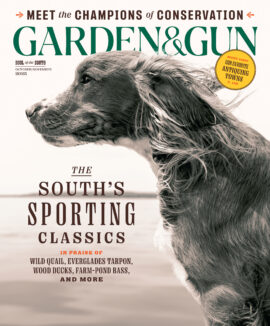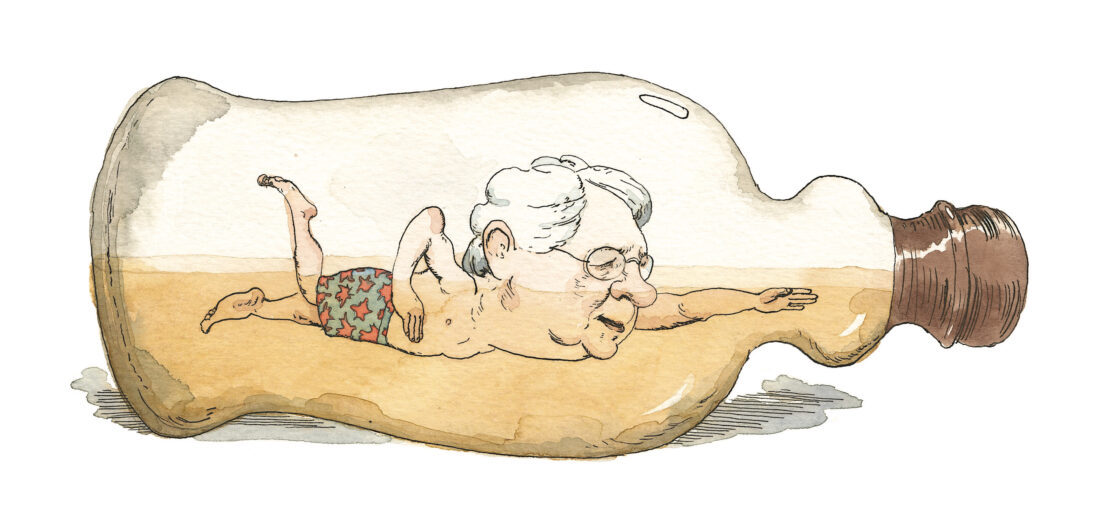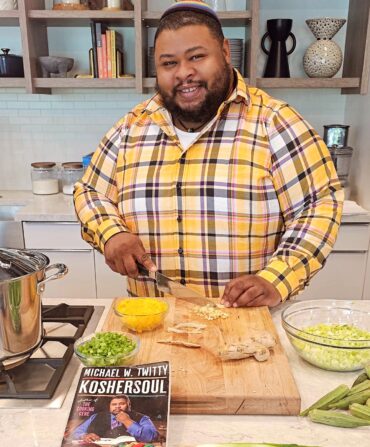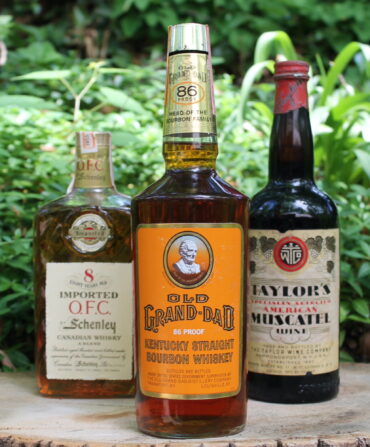I know I have enjoyed a great deal of merriment and bourbon, together, over the years. So how to explain how seldom the word bourbon appears in a context of humor? Most words with two b’s in them are good for a couple of laughs: bubbly blab bubba bamboozle bubbeleh bada-bing babble bobble booby boogerbear and so on. Maybe guffaws are restrained in the face of the word bourbon by the fact that it derives (by way of a county in Kentucky) from a line of French kings. Maybe the pronunciation brr-bun evokes, however faintly, a shivering rabbit. Bourbon, I suppose, is not to be lightly bandied about. After all, it has been aged in new, thoroughly charred oak barrels. A six-bottle selection of a certain brand of bourbon costs more than I paid for my first house.
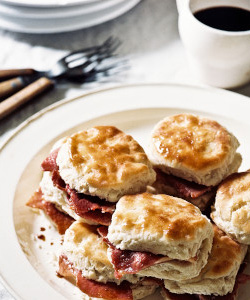
Bourbon is corny (distilled from corn)—but only in the most refined sense. A connoisseur, online, may describe a given bourbon as having “a lingering buttery mouthfeel all throughout,” with “slight hints of caramel, layered with notes of nuts, and slight hints of brown spices with a lengthy, [note that ungrammatical comma, presumably serving to stave off the end of the buttery lingering] finish.”
Bourbon does not make us belch.
Beer does, and beer is funny. The other day I saw a woman wearing a T-shirt that said, SAVE THE EARTH—ONLY PLANET WITH BEER. If that had been about bourbon, I could not have been sure it was tongue-in-cheek. “My bucket’s got a hole in it, / I can’t buy no beer” would not apply to bourbon, which has surely never been sold by the bucket. “Ninety-nine bottles of bourbon on wall”? Please.
You notice I had to leave the word the out of that ninety-nine bottles line, to make the meter go right, because bourbon has twice the syllables of beer. In his magisterial work American Cornball: A Laffopedic Guide to the Formerly Funny, Christopher Miller points out that among the many reliable topics of traditional American humor (Tightwads, Ankles, Brothers-in-Law, Eggheads, Married Sex, Murphy Beds, Nincompoops, Snoring, Thumbtacks, Pants, and so on), there is only one type of whiskey: rye. One reason: The word is short enough to fit on the label of a cartoon bottle. The other reason: It rhymes with everything from why to ai-yi-yi. If you tried to write light verse focusing on bourbon, you might get as far as something like:
I’m sorry to say, Mrs. Sherburne,
I can’t get both you and your turban
Into this Chevy Suburban.
How do you get from there to bourbon? (Also, Sherburne has too many r’s.)
So rye is wry. What may be the great comic whiskey ballad is an old folk song, adapted and popularized by Blind Lemon Jefferson and Tex Ritter and recorded, in various versions and with various titles, by everyone from Waylon Jennings to Odetta:
Rye whiskey, rye whiskey,
Rye whiskey, I cry,
If a tree don’t fall on me,
I’ll live till I die.
Bourbon appears, to be sure, in “One Bourbon, One Scotch, One Beer,” a great song recorded by many great people. Amos Milburn, whose 1953 version is one of the best, would set three shot glasses out on his piano, and as he played, audience members would keep them replenished. “I practiced what I preached,” he said. But that’s tossing bourbon into a rough crowd.
Bourbon’s distinctive quality works better in another fifties classic. Unlike W. C. Fields’s The Fatal Glass of Beer, which tells the zither-accompanied tale of an innocent young man driven by a beer to kick, and break, a Salvation Army girl’s tambourine, the song “One Mint Julep” spells out in rowdy rhythm and blues how one dewy bourbon-based beverage associated with verandas can sweep a rowdy-rhythm-and-blues fellow, before he knows it, into marriage, fatherhood, responsibility.
If I were you, I wouldn’t Google “bourbon humor.” Here’s an example: “Bacon alone can’t solve all our problems. We need bourbon too.” The site thebourbonmaster.com offers “50 Bourbon Puns to Give You a Laugh.” Boozy dad jokes! One is even creepier: “Bourbon is like a warm embrace; it hugs you from the inside out.”
But who goes to the internet for humor, when there are books? One of the funniest Southern writers, Eudora Welty, drank bourbon. So, more expansively, did William Faulkner and Hunter S. Thompson. This evening I was unable, offhand, to find the word bourbon in their works. But I sure did enjoy looking, and guess what I was sipping, responsibly, as I turned the pages.

